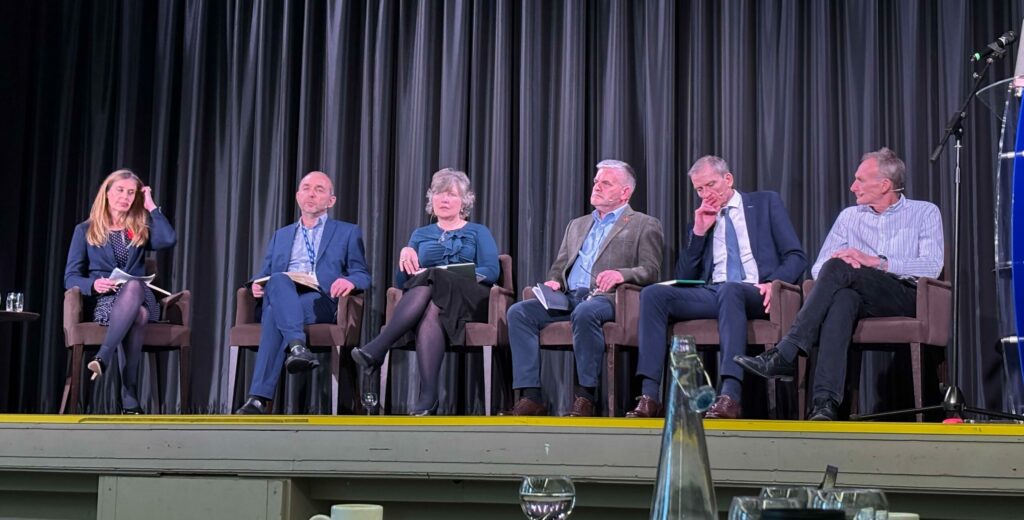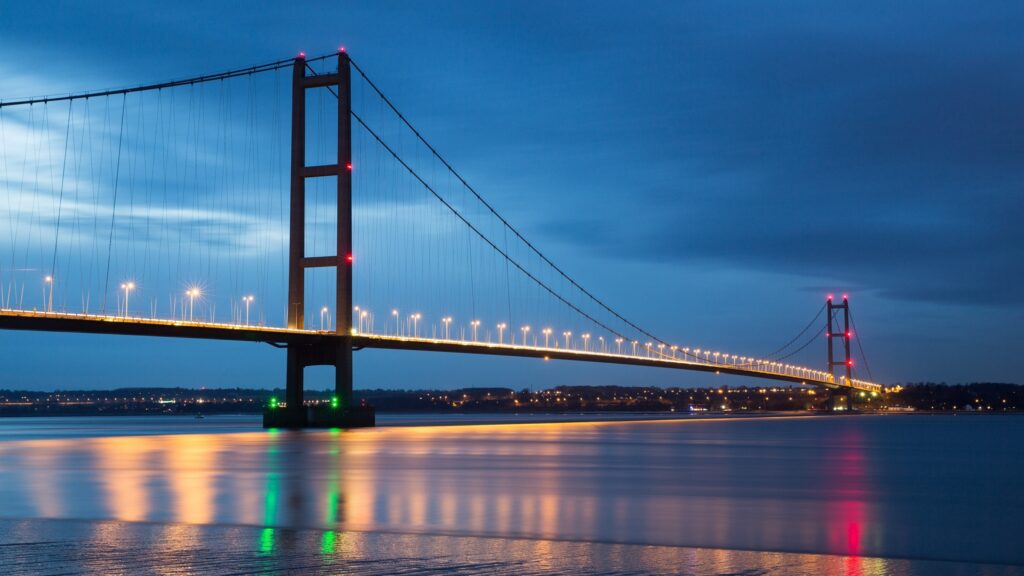The importance of businesses involving their supply chain from the start of the drive to net zero has been highlighted by an expert panel.
Humber Freeport CEO Simon Green joined a panel at the University of Hull on October 30, which discussed the progress made in the region to decarbonise its expansive logistics sector.
The logistics sector contributes around 12 per cent of global carbon emissions. Transitioning to a low carbon, green model is therefore essential for the UK to achieve its net zero targets.
Speaking on the panel, Mr Green said the Humber’s greatest commodity was its location, and that its rich ports and maritime heritage meant it was well equipped to drive clean growth and transition to a green supply chain.
He said: “We are seeing an influx of great ideas and innovations in areas ranging from hydrogen and battery storage, to electric vehicles and wind energy.
“What we must see now is collaboration on an intermodal level. Let’s use the analogy of a logistics company bringing goods into the Humber on a hydrogen-powered ship. If you are then putting those goods into the back of a diesel lorry, then you’ve lost out.

“We need to think a lot smarter in the way we move goods, and the way our logistics and transport sectors work together.
“The objective must be to create a green, efficient logistics sector and supply chain for the many businesses we have in the region who import and export materials.”
The panel of experts, spanning a broad range of sectors, discussed both the opportunities and challenges for supply chains in the net zero transition.
The event was hosted by the University’s Logistics Institute. Established in 2008, the Institute is a world-renowned centre for research and expertise in logistics and supply chain management.
Mr Green was joined on the panel by:
- Tony Mannix – Strategic Advisor Retail, GXO
- Claire Hinton – Head of Procurement & Compliance, Ideal Heating
- Adam Fowler – Senior Decarbonisation Officer, Hull City Council
- Paul Andrews – Director of Global Energy, Smith & Nephew
Ideal Heating, founded in Hull more than a century ago, manufactures hundreds of thousands of gas boilers every year.

Humber bridge by night.
As the UK’s market leader in both the domestic and commercial heating sectors, Ideal Heating is also a significant importer of goods from Europe.
The business is currently investing £60m at its site in National Avenue, Hull, as it transitions its product portfolio from fossil fuel-based heating solutions to low carbon alternatives like heat pumps.
A key part of that transition is examining the way Ideal Heating transports its products and goods, and deepening its understanding of its supply chain.
Humber Freeport has supported Ideal Heating’s low carbon transition by allocating more than £2m of seed capital funding to the company’s UK Technology Centre.
Once completed, the facility will act as a testbed for product innovation and low carbon heating solutions.
The panel event at the University of Hull came just hours after Chancellor Rachel Reeves delivered her first Autumn Budget statement.
In it, the Government announced the Freeports programme would align with the national industrial strategy.
It also confirmed that five new customs sites in existing Freeports will be approved shortly.
The Budget commitment to Freeports came just days after Prime Minister Sir Kier Starmer said in a media interview that Freeports were “working well” and his Government planned to make improvements “so they work even better”.


